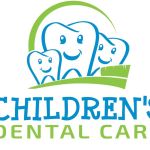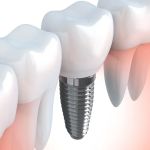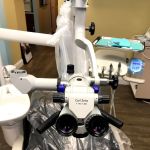How to Avoid Tooth Pain
- 1. Understanding the Causes of Tooth Pain
- 2. Preventive Measures to Avoid Tooth Pain
- 3. The Importance of Regular Dental Visits
- 4. Effective Treatments for Tooth Pain
- 5. Lifestyle Tips for Maintaining Healthy Teeth
1. Understanding the Causes of Tooth Pain
Tooth pain can be caused by various factors, including cavities, gum disease, teeth grinding, or even cracked teeth. Identifying the source of your tooth pain is the first step in preventing it. For instance, cavities can cause dull or sharp pain, while gum disease typically leads to pain when chewing or brushing. Understanding the root cause will allow you to take proactive steps to avoid future discomfort.
2. Preventive Measures to Avoid Tooth Pain
There are several practical ways to prevent tooth pain before it starts:
- Brush and floss regularly: Maintaining proper oral hygiene is key to preventing cavities, gum disease, and other sources of tooth pain. Brush at least twice a day and floss once a day to remove plaque and food particles.
- Use fluoride toothpaste: Fluoride helps strengthen tooth enamel, making it more resistant to decay and sensitivity, both of which can lead to pain.
- Wear a mouthguard: If you grind your teeth at night, wearing a custom-made mouthguard can prevent damage to your teeth, reducing the risk of pain caused by cracks or fractures.
- Avoid sugary and acidic foods: Excessive sugar and acid can wear down enamel and lead to cavities and sensitivity. Reducing your intake can help protect your teeth.
By adopting these habits, you can significantly reduce the risk of experiencing tooth pain in the future.
3. The Importance of Regular Dental Visits
One of the most effective ways to avoid tooth pain is by visiting your dentist regularly. Routine dental check-ups allow your dentist to detect potential issues such as cavities or gum disease before they become painful. Early detection and treatment are key to preventing severe pain and other complications. Regular cleanings also help remove plaque and tartar that could lead to dental problems if left untreated.
4. Effective Treatments for Tooth Pain
If you do experience tooth pain, there are several treatment options available:
- Desensitizing toothpaste: If sensitivity is the cause of your pain, desensitizing toothpaste can help alleviate discomfort by blocking the pain signals to your nerves.
- Fluoride treatments: In-office fluoride treatments can strengthen enamel and reduce pain caused by sensitivity or early-stage cavities.
- Dental procedures: If the pain is due to more serious issues like a cavity or cracked tooth, your dentist may recommend fillings, crowns, or root canals to address the problem and relieve the pain.
Consult your dentist for the best treatment plan based on the cause and severity of your tooth pain.
5. Lifestyle Tips for Maintaining Healthy Teeth
In addition to regular dental care, adopting a healthy lifestyle can support your efforts to prevent tooth pain. Here are some tips:
- Stay hydrated: Drinking plenty of water helps wash away food particles and bacteria, promoting better oral health.
- Eat a balanced diet: A diet rich in vitamins and minerals, particularly calcium and vitamin D, supports strong teeth and bones.
- Quit smoking: Smoking contributes to gum disease and other oral health problems that can lead to tooth pain.
By incorporating these habits into your routine, you’ll be better equipped to keep your teeth healthy and pain-free.
For more information on how to avoid tooth pain and discover the best dental products, visit Dentistry Toothtruth.







 Children's Dental Care4.0 (18 review)
Children's Dental Care4.0 (18 review) Smile Haus4.0 (292 review)
Smile Haus4.0 (292 review) Carvalho & Roth Orthodontics: Northborough4.0 (198 review)
Carvalho & Roth Orthodontics: Northborough4.0 (198 review) Rick Lacuesta, DDS2.0 (4 review)
Rick Lacuesta, DDS2.0 (4 review) Northland Family Dentistry4.0 (111 review)
Northland Family Dentistry4.0 (111 review) South Shore Dental Care: Dory Stutman, DDS5.0 (7 review)
South Shore Dental Care: Dory Stutman, DDS5.0 (7 review) The Importance of Oral Health Education During Pregnancy for a Healthy Pregnancy
The Importance of Oral Health Education During Pregnancy for a Healthy Pregnancy Best Tips for Brushing Your Teeth Properly for Healthy Gums: Essential Techniques for Oral Health
Best Tips for Brushing Your Teeth Properly for Healthy Gums: Essential Techniques for Oral Health Why Skipping Dental Checkups Can Lead to Bigger Oral Health Problems
Why Skipping Dental Checkups Can Lead to Bigger Oral Health Problems Advantages of Porcelain Dental Restorations
Advantages of Porcelain Dental Restorations How Can Diabetes Cause Tooth and Gum Problems? Preventing and Managing Oral Health Issues
How Can Diabetes Cause Tooth and Gum Problems? Preventing and Managing Oral Health Issues Healthy Habits for Promoting Good Oral Health and Hygiene: Tips for a Healthy Smile
Healthy Habits for Promoting Good Oral Health and Hygiene: Tips for a Healthy Smile